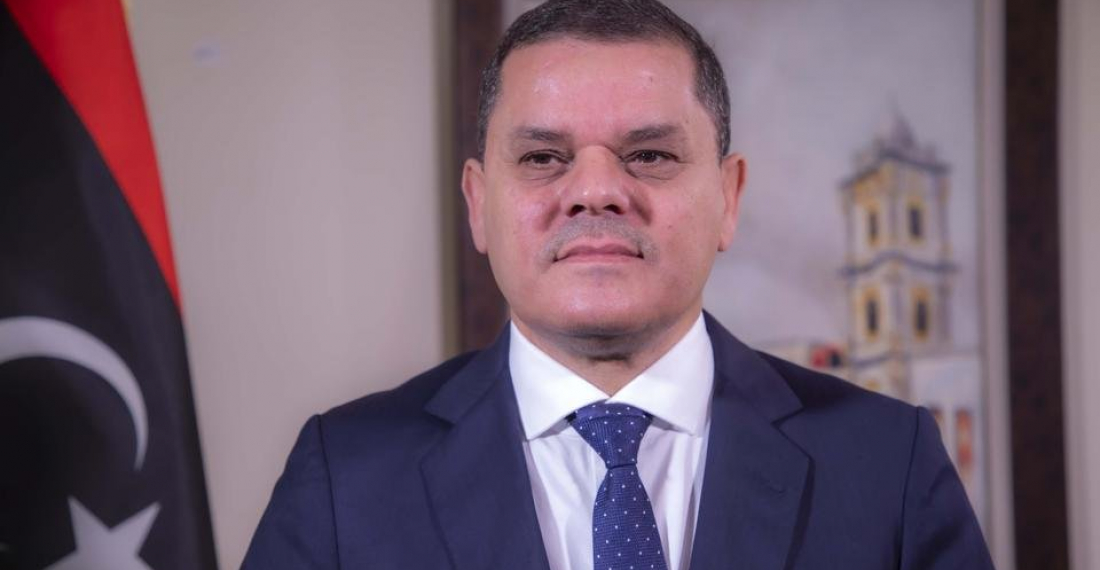After a series of talks and extended negotiations, various Libyan political and armed factions have agreed to form a new interim leadership that will act as a unified executive authority until elections on 24 December.
During a meeting in Geneva last week, the 74 members of the Libyan Political Dialogue Forum (LPDF) chose a slate of four candidates. The list included Misrata-based politician and businessman Mohammed Dbeibah as Prime Minister and other three politicians as members of the Presidential Council. These include and Mohammed Younes Menfi from eastern Libya, Moussa Al-Koni from the south of the country, and Abdallah Hussein Al-Lafi from the western city of Zuwara.
The list triumphed over candidates on a rival lists led by Fathi Bashagha, the security chief of the UN-recognised Government of National Accord (GNA), and Aguila Saleh, the head of the eastern-based parliament.
The members of the interim authority will not be eligible to stand as candidates in December’s elections. It is only tasked with preparing to unify the state's economic and financial institutions, tackling the dire living conditions many Libyans have been forced to endure, and enacting economic reforms needed to ensure a more equitable distribution of oil revenues in the country, which is a member of OPEC.
In remarks by the High Representative, Josep Borrell, the European Union pledged to fully support the interim authority.
"We are ready to work with the new President of the Presidency Council, Mohammad Younes Menfi, and the new Prime Minister, Abdul Hamid Mohammed Dbeibah, and stress the need for the swift formation of a new, inclusive government that will work for national reconciliation and unification of the country. We encourage the House of Representatives to vote on the LPDF outcomes according to the timeline agreed in the Road Map adopted by the LPDF in Tunis in November 2020."
Read the statement by High Representative Josep Borrell on behalf of the EU here
Stephanie Williams, the UN’s acting special representative for Libya, reminded that the work is still at its early phases and that more work needs to be done in preparation for the elections.
“Let’s be clear: the goal here is national elections,” she stressed as she urged the winners to respect agreed deadlines, including the endorsement of a new government by the parliament within 42 days. Until then, the GNA remains the caretaker government. After that date, all parallel institutions will be considered “null and void.”
UN Secretary-General Antonio Guterres hailed the selection of the interim leadership as a breakthrough that followed a long process of negotiation that began to bear fruit when the 5+5 Joint Military Commission agreed on a ceasefire in October last year.
Jan Kubis, who was appointed the UN’s special envoy to Libya last month, will now take over from Williams.
Arab countries have welcomed the agreement of a new interim executive authority in Libya. Secretary-General of the Gulf Cooperation Council Nayef Falah Al-Hajraf said the decision was an important step to reach a permanent and comprehensive solution that achieved security, stability and development in Libya.
Egypt, UAE, Bahrain, Kuwait and Jordan have also expressed their hopes for stability and supported the transition to an elected and unified government.
Turkey has been one of the countries to welcome recent developments
“We welcome the designation of the President and members of the Presidency Council and the Prime Minister who will serve until the general elections that are scheduled to be held on 24 December 2021 in Libya, as a result of the elections held in the Libyan Political Dialogue Forum (LPDF),” the Turkish Foreign Ministry said in a statement. “We hope that the new Government of National Unity will be formed and take office as soon as possible on the basis of the Road Map adopted by the LPDF,” the ministry noted.
In Libya itself, there is a mix of slight optimism and relief. No controversial figures made it to the lists and various political factions have generally agreed to cooperate. Whilst uncertainly is always present, the Libyan street feels optimistic about its progress and what lies ahead.







